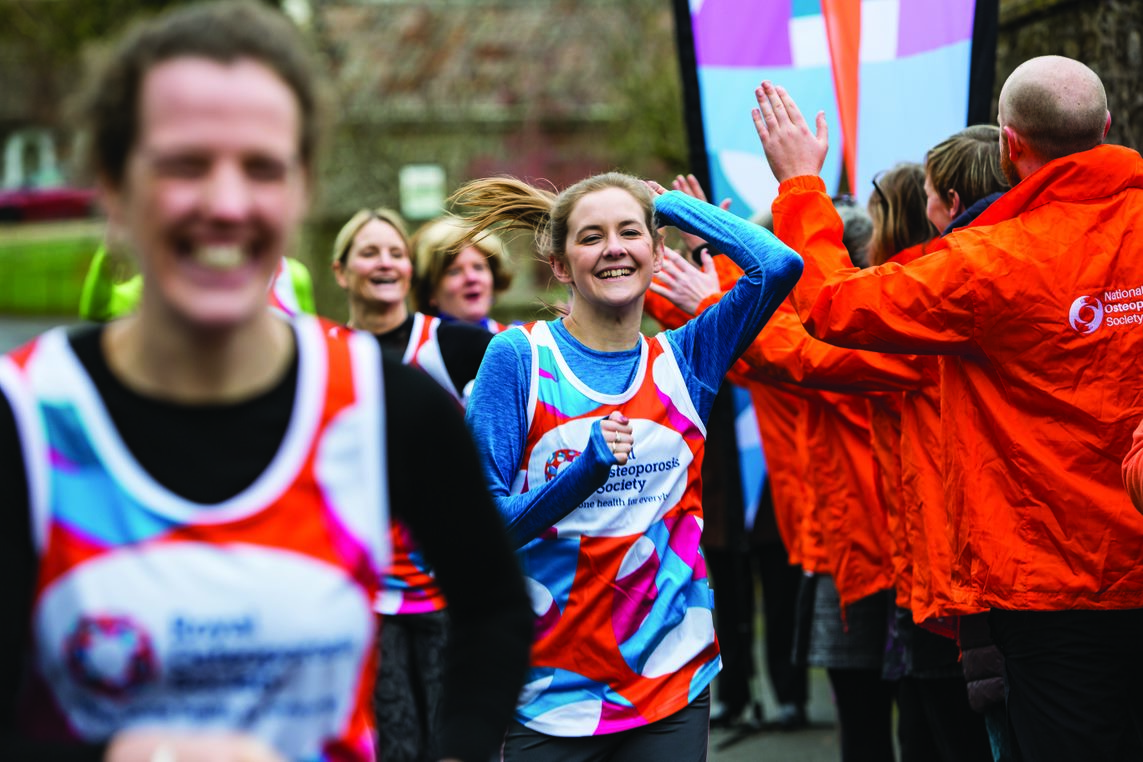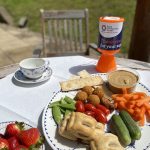Experts at the Royal Osteoporosis Society (ROS) have revealed the top 10 Olympic sports to help people improve their bone health, after recent research* found that only 34% of the nation try to look after their bone health compared with 64% who try to be a healthy weight.
From gymnastics to weightlifting, there are sports we’ve all seen at the recent Olympics that can improve our bone health. Sarah Leyland, Clinical Advisor at the ROS explains why we should all be acting on bone health,
“Bones stay strong if you give them work to do. The Olympics and other sporting events that we’ve seen this summer are a fantastic opportunity to inspire people to be more physically active.
“Bone health is often overlooked when it comes to health and wellbeing, but our bones start to lose strength after the menopause for women and from 50s onwards for men, and this can lead to osteoporosis in later life – a condition that means bones are more vulnerable to breaking easily.
“Half of women and 20% of men over 50 will break a bone because of osteoporosis. However, there are things we can do throughout our lives to help prevent it. For exercise to be most effective at keeping bones strong, you need to combine weight-bearing exercise with impact and muscle-strengthening exercise.”
Unfortunately, though, the ROS research found that only 33% of people know that weight-bearing and muscle-strengthening exercises are needed to build strong bones.
Assuming we’re all not too busy taking up knitting like Tom Daley, here are the top activities the ROS recommends for strong bones following the Tokyo 2021 Olympics:
Olympic sports good for bone health:
1.Gymnastics
2.Tennis
3.Weightlifting
4.Running
5.Badminton
6. Hurdles
7. Volleyball
8. Basketball
9. Football
10.Baseball
These are the sports that research has shown are good for bone strength. Other sports such as skateboarding are likely to be beneficial too.
What is weight-bearing exercise with impact?
Sarah explains, “You are weight bearing when you are standing, with the weight of your whole body pulling down on your skeleton. Weight-bearing exercise with impact involves being on your feet and adding an additional force or jolt through your skeleton – anything from walking to star jumps works.”
What is muscle-strengthening exercise?
Sarah continues, “When your muscles pull on your bones it gives your bones work to do. Your bones will respond by renewing themselves and maintaining or improving their strength.
“To strengthen your muscles, you need to move them against some resistance. Increasing muscle resistance can be done by adding a load for the muscles to work against, such as a weight in your hand, using an elastic muscle resistance band or using your bodyweight during a press up, for example.
“As your muscles get stronger and you find the movements easier, you can gradually increase the intensity of the resistance – by increasing the weight of what you lift. This is known as progressive resistance training and research studies have shown that this is likely to be the best type of muscle-strengthening exercise for bone strength.”
The ROS recommends starting new sports activities with an instructor in a gym to get the right advice about which weights or machines to use – and most importantly, learn the correct technique. Building up gradually according to your fitness level and muscle strength is essential.
Professor Dawn Skelton, of Glasgow Caledonian University, reminds us: “It’s always great to sit and watch these inspiring athletes and some of us will be inspired to try more sporting activities. For others, especially following the social restrictions from the pandemic, the main thing is to be on your feet more, move more, use the stairs rather than the lift, get off the bus one stop earlier or park the car furthest away in the supermarket car park.
“You can also do seated strengthening work if you are not able to stand. Be good to your bones and you will also benefit the heart and the brain!”
For more information about exercise that is good for bones, please visit theros.org.uk/exercise-for-bones or call the free ROS Helpline on 0808 800 0035.


5